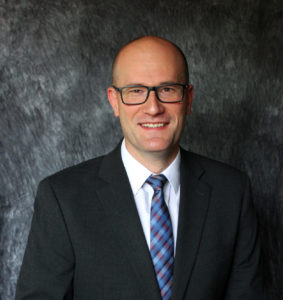Every church leader or parent has been confronted with the same basic argument—
“You can’t make me put my phone away! What ever happened to agency?”
“I can date before I’m 16 if I want to because I have agency!”
“You can’t tell me to wear a mask at church. I have my agency!”
“The Church’s stance on abortion is inconsistent with agency.”
“Why is the Church opposed to same sex marriage? Don’t we believe in agency?”
Partly because we place such a high doctrinal value on agency, Latter-day Saints are often poorly equipped to deal with these criticisms.
Before the world began, Lucifer “rebelled against [God], and sought to destroy the agency of man” (Moses 4:3). Satan and his followers lost the ensuing war and were cast out, but they continue to “rage in the hearts of the children of men, and stir them up in anger against that which is good” (2 Nephi 28:20). Satan has never conceded his loss; He persists in trying to “destroy the agency of man.”
One way he continues his campaign is by teaching that “all mankind should be saved at the last day… for the Lord had created all men, and had also redeemed all men; and, in the end, all men should have eternal life.” (Alma 1:4; compare to Moses 4:1). He also whispers that God “will justify in committing a little sin…. and if it so be that we are guilty, God will beat us with a few stripes, and at last we shall be saved in the kingdom of God” (2 Nephi 28:8). In short, he teaches that we will be saved “in our sins” rather than “from our sins” (see Helaman 5:10).
For agency to have meaning, our power of choice must be laden with consequence. If our actions always resulted in the same outcome, then our choices would be meaningless; if “all mankind should be saved at the last day” in spite of our choices, then we could not actually choose whether to be saved or damned. This would “destroy the agency of man” (Moses 4:3). There can be no agency without choice and consequence.
As explained by President J. Reuben Clark, Lucifer may have been proposing “saving men in sin,” rather than robbing them of choice through compulsion (Conference Report, Oct. 1949, 193). Satan “would have taken away the free agency of men [by] sav[ing] them in their sins” (Conference Report, April 1951, 79).
Few concepts have more potential to mislead us than the idea that choice, or agency, is an ultimate goal. For Latter-day Saints, this potential confusion is partly a product of the fact that moral agency—the right to choose—is a fundamental condition of mortal life. Without this precious gift of God, the purpose of mortal life could not be realized. To secure our agency in mortality we fought a mighty contest the book of Revelation calls a ‘war in heaven.’ This premortal contest ended with the devil and his angels being cast out of heaven and being denied the opportunity of having a body in mortal life (see Revelation 12:7-9).
But our war to secure agency was won. The test in this postwar mortal estate is not to secure choice but to use it—to choose good instead of evil so that we can achieve our eternal goals. In mortality, choice is a method, not a goal.
Of course, mortals must still resolve many questions concerning what restrictions or consequences should be placed upon choices. But those questions come under the heading of freedom, not agency. Many do not understand that important fact. We are responsible to use our agency in a world of choices. It will not do to pretend that our agency has been taken away when we are not free to exercise it without unwelcome consequences.
(Dallin H. Oaks, “Weightier Matters,” January 2001 Ensign).
Is agency harmed by requiring a young man to put his phone away during seminary? Or, are we violating agency by imposing church membership restrictions on someone?
As a parent or a church leader, discerning the appropriate application of consequences to individual choices can be difficult. However, we need not feel that we are violating agency—we are defending it.
 Andrew I. Miller is a FAIR volunteer from Crystal City, Missouri. He is a proud husband and father of four currently serving as a bishop. By profession he is a High School Spanish teacher.
Andrew I. Miller is a FAIR volunteer from Crystal City, Missouri. He is a proud husband and father of four currently serving as a bishop. By profession he is a High School Spanish teacher.
